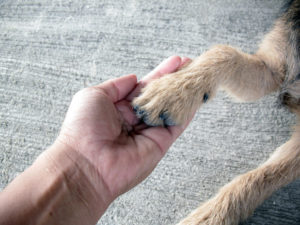Aside from COVID-19, you can pick up many other diseases in the office. The air-conditioned space provides the right environment for viruses and bacteria to thrive. For instance, one study has tested how fast a virus can spread inside an office by planting a surrogate virus in the hands of 10 employees. The employees went about their days, and by noon, the researchers swabbed commonly used surfaces to see if the virus had spread.
They discovered that half of the swabbed surfaces and the other employees had tested positive for the planted virus in just four hours. Therefore, your office can experience a disease outbreak at the same rate.
Fortunately, you can prevent the spread the viruses and bacteria with inexpensive and straightforward measures. You don’t need to buy air purifiers or hire professional cleaners all the time. Instead, consider adding the following actions to your workplace hygiene policy:
1. Bathroom Etiquette
Maintaining commercial washrooms isn’t the same as maintaining bathrooms at home. Different people use commercial toilets, so they require cleaning more often. If your office bathrooms don’t get scheduled for regular upkeep, it may become a breeding ground for bacteria and viruses.
Hence, promote proper bathroom etiquette in your office. For example, ask your employees to flush the toilet after each use. Remind them to avoid flushing any foreign object in the toilet, except toilet paper. Flushing “unflushables” may clog the drains and leave dirty standing water in the toilet. In addition, it will emit a foul odor that may cause nausea.
To prevent the further spread of bacteria, flush the toilet with the lid down. It will make the toilet safer for the next person to use.
Put a toilet brush inside each cubicle. It will allow employees to clean the toilets themselves after doing their business. And of course, don’t forget to replenish your stocks of toilet paper. Put maintenance personnel in charge of inventorying restroom products to avoid running out of essentials.
2. Cleanup Days

Set aside two days of a year for a general cleanup. You may hire professional cleaners for this task. However, your employees should tackle their workstations themselves. Ask them to organize their things and put away clutter. You can also hold a recycling drive, as it can help you reduce waste.
Cleanup drives are best done at the end of the year and over the summer. Do them on the weekend to avoid disrupting productivity.
3. Name and Shame
The Name and Shame policy may elicit flak. Still, it may discourage employees from making a mess or observing poor hygiene. The Name and Shame policy will be helpful in extreme situations, such as when employees eat at their desks and leave food residue. You don’t need to post their names and photos on the bulletin board. Instead, take a picture of their messy desk and use it as an example of poor workplace hygiene.
Food residue and spills can also spread diseases. Suppose the person who left them has a cold, for example. In that case, the other employees who touched the spills and residue can also get sick. Another possible scenario is the food residue attracting mice and cockroaches. Those pests are notorious for spreading viruses, some of them deadly.
Hence, don’t hesitate to name and shame if your employees’ irresponsible acts increase your chances of experiencing an outbreak.
4. Ergonomic Workstations
Aside from common infectious diseases, backache, headaches, and stress can also spread in your office. Prevent them with ergonomic workstations. For example, provide office chairs with adjustable heights and reclines. They will promote proper sitting posture. In addition, place monitors at the employee’s eye level. It will help reduce bouts of neck and eye strain.
5. Accountability
Finally, make your employees accountable for their workstations and workplace habits. Though cleaning isn’t a part of their job description, they should still keep their desks tidy. Moreover, when they eat in the pantry or break room, they should clean as they go. Even if you have a cleaner in the office, your employees shouldn’t leave every cleaning job to them. The primary responsibility of your cleaning staff is to keep the common areas spotless. Employees should clean after themselves regarding workstations, food, and bathroom businesses.
You can’t control your employees’ hygiene. But you can order them to follow policies and protocols. Set consequences for non-compliant employees. They should know how much your company takes health and hygiene seriously.
To motivate your employees to commit to your cause, consider incentivizing tidiness. For example, every month or so, acknowledge the top five cleanest employees. You can also provide free hand sanitizers or disinfectant wipes for everyone. That way, all employees can stay germ-free and your office outbreak-free.





